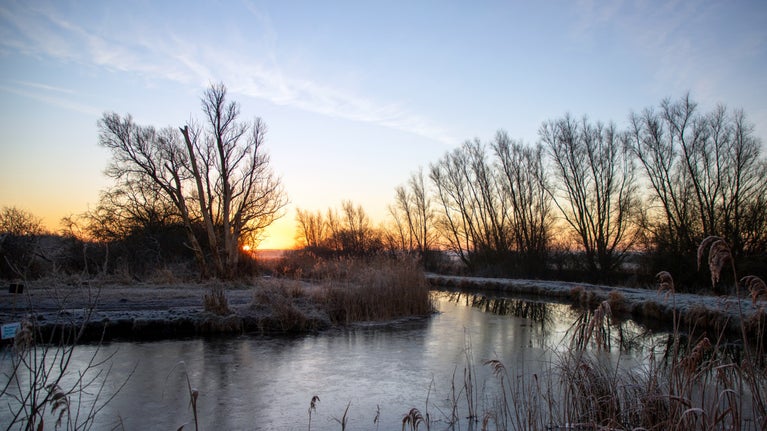
Caring for nature
Learn about our work on nature, climate and sustainability, and find out what you can do to make a difference.

Fracking in the UK could have a major impact on our landscape and wildlife. We’ve joined other leading countryside groups to call for our most sensitive landscapes to become frack-free zones, and for improved regulation of shale gas.
In 2014 we were part of a new report called ‘Are We Fit to Frack?’, developed with the Angling Trust, RSPB, the Salmon & Trout Association (now Salmon & Trout Conservation), The Wildlife Trusts and the Wildfowl & Wetlands Trust. We set out ten recommendations for Government to make fracking safer.
The recommendations were based on a full technical evidence report, which was peer reviewed by the Centre for Ecology and Hydrology, one of the UK’s leading ecological research institutes. It was supported by a cross-party group of MPs, including Zac Goldsmith, Alan Whitehead and Tessa Munt.
Read the full Fit to Frack report (PDF)
Read the Fit to Frack report summary (PDF)
All protected wildlife areas, nature reserves and national parks to be frack-free zones.
Full environmental assessments to be carried out for each drilling proposal.
The shale gas industry to pay the costs of its regulation and any pollution clean-ups.

The report highlighted a lack of regulation around shale gas exploitation, which could cause serious impacts for a range of threatened species including pink-footed geese, salmon and barbastelle bats.
It also raised serious concerns about the impact of drilling and water contamination on some of our most precious natural habitats, such as chalk streams. These crystal-clear waterways are known to anglers and wildlife-lovers as England’s coral reefs – 85 per cent of the world’s chalk streams are found here.
The debate on fracking needs to be evidence-based. The evidence from this detailed research clearly revealed that the regulation of shale gas needed to be improved if it were to offer adequate protection for sensitive environments.
Fracking in the UK has been paused since 2019, but escalating global fuel prices have since brought the process back under consideration. The Government should rule out fracking in the most sensitive areas and ensure that regulations offer sufficient protection to our treasured natural and historic environment.


Learn about our work on nature, climate and sustainability, and find out what you can do to make a difference.
Read our position on fracking, a mining process that uses the injection of high-pressure liquid to extract fossil fuels from shale rock.

From tips on saving water to combatting plastic pollution, learn more about our work to protect precious coasts and rivers for wildlife and people, and what you can do to help.

With support from the Government’s Green Recovery Challenge Fund, we're looking for ways to protect our environment and combat climate change. Find out more about the work we're doing.

Climate change is the single biggest threat to the places we care for. Take a look at our environmental pledges as we adapt, reduce carbon emissions and address the damage already done.

Find out how the planning systems impacts the National Trust and how we advocate for the best outcomes for people, climate, nature and heritage.
